184: Water Management: Shale Oak | Marketing Tip Monday
While consumers name food and beverage as one of the most important industries when it comes to sustainability, more than 1 in 4 US adults said they don't know what makes a product sustainable (2022 Morning Consult, What Sustainability Means to Consumers). There is a need for consumer education on sustainability, and this is a great opportunity for your brand!
Welcome to Marketing Tip Monday with SIP Certified. We know customers are looking for wines labeled as sustainable. While our longer-form episodes help you learn about the latest science and research for the wine industry, these twice-monthly micro podcasts will help you share your dedication to sustainable winegrowing so you can show your customers that you share their values.
You can help educate your customers by sharing specific things that your brand does to be sustainable. Build a bond over your mutual care for the health of the people and the planet!
Sharing your practices is easy. Just reference the Sustainable Story worksheet!
The brand-new Sustainable Story worksheet is a simple yet powerful free tool that helps you tell your own personal sustainable message. Simply download the worksheet linked in the show notes, complete it with your whole team, and keep following along with this podcast series to learn how to incorporate your story into every aspect of your marketing and sales.
Plus, we are inspiring you by sharing what like-minded brands are doing to care for the people and the planet.
As a vineyard and winery on California's Central Coast, Shale Oak embraces Water Management as a top sustainability initiative. Here is just one of the things they do to help conserve water.
Water Management at Shale Oak
One of California’s biggest sustainability concerns is water. In 2022, about 75% of California was declared to be in a severe drought.
Shale Oak addresses this critical resource concern by using their tasting room and winery roof to capture rainwater.
This water is stored in five 100k-gallon water cisterns atop their hill, and is used throughout the year to deficit irrigate their 5-acre vineyard and maintain landscaping during the drier months.
Deficit irrigation is a water management strategy that helps limit water usage by being very meticulous with watering schedules. Shale Oak relies on mother nature to supply the vast majority of the water used at their operation, and they are able to give the vines supplemental irrigation at critical stages during their life cycle.
Sustainability is a buzzword that gets thrown around a lot these days, but what does it really mean? Shale Oak believes that true sustainability is implementing farming practices that can be passed down for generations to come – practices that will keep their great-great-grandchildren in business, too!
Shale Oak helps to lessen the demand on California's water supply by reducing the amount of water they need to pump into their vineyard. Proudly telling their Sustainable Story surrounding Water Management practices helps their customers know that they are supporting a business that cares about protecting natural resources, and inspires their peers and future generations to follow suit!
Does Your Team Know Your Sustainable Story?
Need an easy way to help your team talk about your sustainable practices?
Use the Our Sustainable Story worksheet!
Go through the worksheet as a team and you will walk away with 7 specific sustainable practices to talk about during tastings and sales calls, use in your marketing and wine club material, and so much more!
Worksheet for Print | Worksheet for Electronic Filling
Stay tuned for more Marketing Tip Mondays, where we will help you explore ways of incorporating your brand's sustainable practices into your messaging.
Check out the show notes to download and complete your own Sustainable Story worksheet, read an example from Niner Wine Estates, to share the blog post about Shale Oak’s story, and sign up for our biweekly Marketing Tips newsletter.
Until next time, this is Sustainable Winegrowing with the Vineyard Team.

